#anti lawn culture
Text
Un-Actions, or Restriction of Activities
This is my first post in a series I’ll be making on how to increase biodiversity on a budget! I’m not an expert--just an enthusiast--but I hope something you find here helps!
There’s a good handful of ways you can help increase biodiversity in your yard that don’t require buying things--in fact, these may actually help you save money in the long run! They may seem small and simple, but every bit counts! Whether you can do these in totality, or just limit how often you do these actions, it’ll make a difference.
Not Mowing, or Mowing Less Often
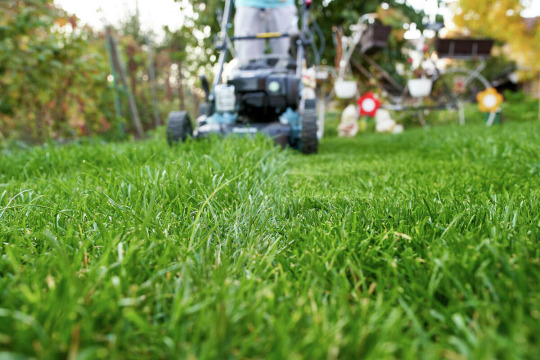
Turf grass lawns are considered a monoculture, meaning they don’t provide much opportunity for insects to find habitat--so few other creatures find them enjoyable either. An expanse of turf grass is, in many ways, a barren wasteland in the eyes of wildlife--too exposed to cross, with few to no opportunities for food or shelter, leaving them exposed to blazing hot sun, freezing cold, or any predators that may be lurking nearby. A place to be avoided. The simple act of letting your grass grow unbothered gives a chance for wildflowers to grow, and for your grass to grow taller--providing more habitat for insects, which then provides more habitat to birds and other creatures that feed on said insects. Wildlife want nothing more than to skirt by unnoticed, so even leaving the grass tall along the edges of a fence or yard can help a little. Even restricting mowing to every other week, or at a higher blade setting, can be a huge help. If HOAs or city ordinances are fussy about lawn length in the front yard, you can likely still keep grass higher in the backyard. Or, you can create a ‘feature’ where grass is allowed to grow long in a specific area. If it looks purposeful, people are more likely to accept it. Not mowing under trees or close to shrubs not only leaves space for wildflowers to grow, but also means you don’t have to deal with mowing over bumpy roots and other difficulties. Cutting different areas at different times can be an option for letting grass grow long in some areas while still having available places for play and entertainment. I’ve seen some people plant flower bulbs when pulling up weeds, so in the future they'll bloom in early spring before mowing is usually necessary. This could be another fun way of adding biodiversity to a lawn without--or before you--begin mowing in spring.
Not worrying about mowing, or doing it less often, saves you in time, money, and energy. You won’t have to buy as much gasoline for your mower, and Saturday afternoons can be free to be enjoyed in other ways aside from being sticky and sweaty and covered in grass stains. In addition, you’ll likely be lowering your own carbon emissions!
If you do have to mow your lawn, I’ve got ways you can use your grass clippings to boost biodiversity later in the post series!
Not using pesticides, herbicides, fungicides, etc.
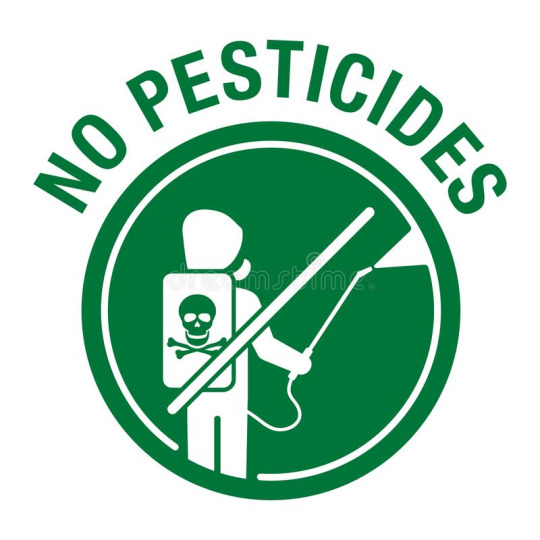
One of the next-biggest non-actions you can do asides from not mowing is using fewer fewer to no herbicides, fungicides, and pesticides in your yard. This’ll easily allow for more biodiversity. Allowing more insects and a wide array of plants to thrive will feed back into the entire food chain in your area. In addition, these types of chemicals have been tied to algae blooms, death of beneficial insects, harm to birds, fish, and even humans. Soil is supposed to be full of fungi, especially fungal mycelium that essentially acts as a network for plants to communicate, share nutrients, and support each other--fungicide kills that, and typically makes all other lawn problems even worse in a negative feedback loop. It may take awhile to see the benefits of avoiding these chemicals, but once you see it, it really is astounding.
However! I can’t lie and say that there haven’t been points where I needed to use pesticides at some points in my gardening journey. In these cases, try to use products that are organic--like diatomaceous earth, neem oil, etc--and use them accurately, correctly, and sparingly. Follow instructions on how to apply them safely and responsibly--for example, on non-windy days and during times when bees and other pollinators aren’t likely to be out and about. With some pests (read: oleander aphids, in my experience), a simple jetstream of water is enough to force them off the plant where they’ll be too weak to get back. Eventually, you should have a balanced enough ecosystem that no one insect pest causes a major issue with the work you’re doing to boost biodiversity.
If you can bear to, try handling pests manually. Squishing pest bugs in your hand is a pretty foolproof way to get rid of some problems, or spraying them with a mix of soap and water can do the trick on some insects. Alternatively, picking them off your plants and into a bucket of soapy water is also a valid option. You’ve heard of baptism by fire, now get ready for… baptism by soap?
But also! Try reconsidering what you consider a pest! Tomato hornworms are hated by gardeners, for devouring the foliage of beloved tomato, pepper, and potato plants. But killing the tomato and tobacco hornworm means getting rid of sphinx moths, also known as hummingbird or hawk moths! Hawk moths are vital to the survival of many native plants, and are sometimes even the only species that pollinates them. If you can bear to, consider sacrificing a few tomato plants, or growing a few extras, so we can continue having these beautiful moths for years to come. After all, they may not even do significant damage to the plants!
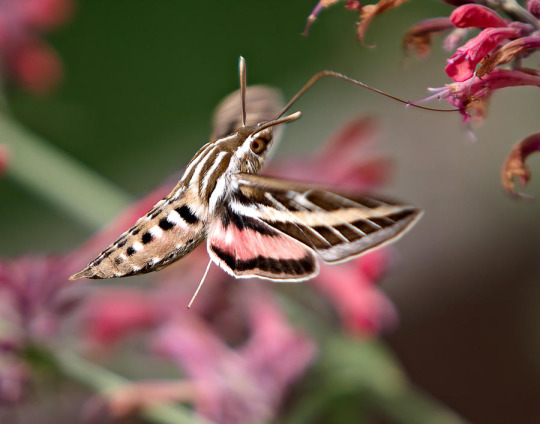
With that in mind, be friendly to your natural pest managers! Lacewings, ladybugs, praying mantises, wasps, birds, bats, and more will help manage pest populations in your environment! Encourage them by planting things they like, providing habitat, and leaving them be to do their work! Avoiding pesticides helps make your garden a livable environment for them, too!
Letting Weeds Grow
Many of the plants we know as 'weeds' are actually secondary succession species and native wildflowers. Milkweed was regarded as a noxious, annoying weed for a long time, and now people are actively trying to plant them after learning about the important role they play in our environments! Weeds are adapted to take over areas that have been cleared out of other plants after a disaster, so they're doing much of the initial work in making a habitat for other creatures. In fact, many of them will simply die back as the environment repairs itself.
An important thing to note is to please make sure that your ‘weeds’ are not invasive species. Work on learning how to identify native and invasive species in your area, and pull out what’s harmful to leave room for what’s good!
Don’t Rake (Or At Least Don’t Bag Your Leaves)
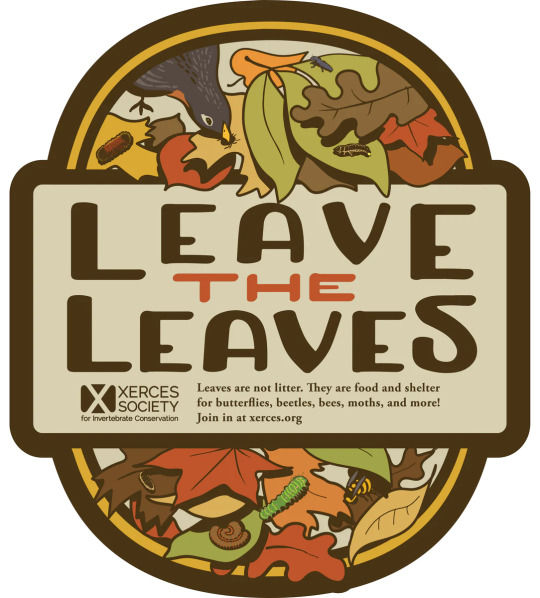
Many insects overwinter in piles of leaves that we often rake away and bag up in the fall and winter. By doing this, we are actively throwing away the biodiversity of our neighborhoods! If you can, leave the leaves where they fall!
If you do need to rake, put the leaves in places wildlife can still access it instead of bagging it up. Move your leaves into garden beds to serve as mulch, or along the edge of fences to rest while keeping egg cases and hiding bugs intact and free to release come spring.
Leave Snags Where They Are
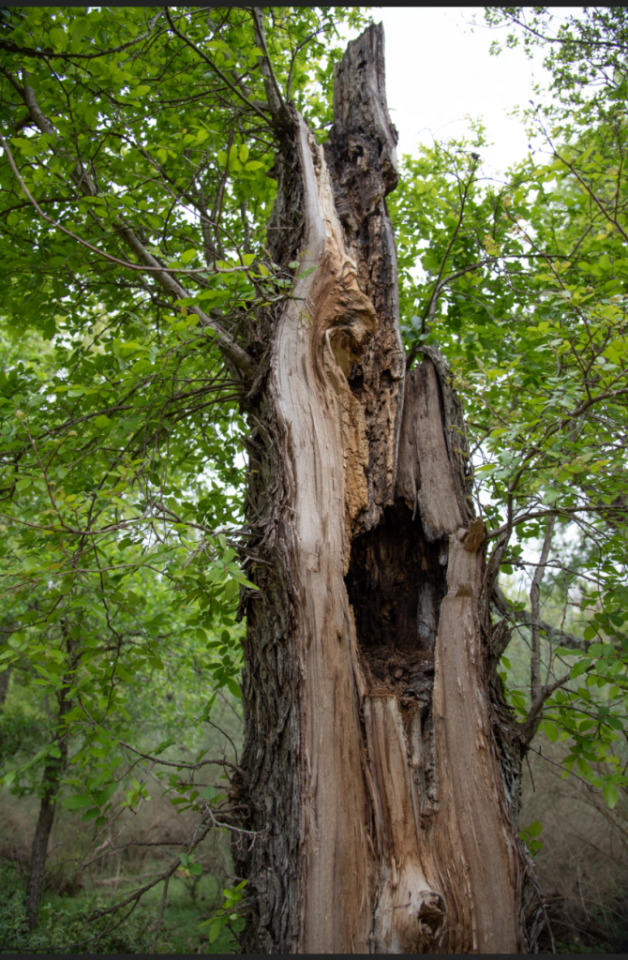
Snags are dead trees/dead branches on living trees. They provide an important wildlife habitat--many birds nest in them, or use them to seek cover from rain, and many insects will also live in snags (making them an additional food source for birds and other creatures). Tree cavities are used as nests by hundreds of bird species in the US, and many mammals use them as well, such as bats, squirrels, raccoons, and sometimes even bears. Some trees form cavities while they’re still alive, but in conifers they’re more likely to form after death. Crevices between the trunk of a dead tree and its peeling bark provide sun protection for bats and amphibians, and leafless branches make great perching areas for birds of prey to hunt from above. The decaying wood is home to insects and fungi, who then feed birds, mammals, amphibians, and reptiles. Do check on the snags regularly to ensure they don’t serve a threat to any nearby structures, but whenever possible, leave them be!
Keep Your Cat Inside
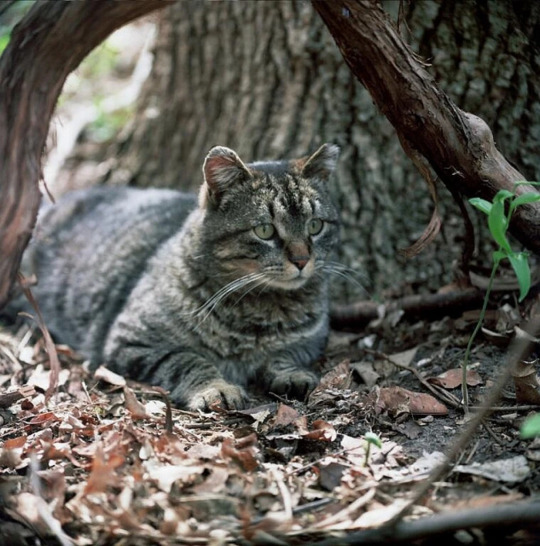
If you have an outdoor cat, consider making the adjustments to have it be an indoor cat. If you have an indoor cat, keep it as an indoor cat. Free ranging cats impact biodiversity through predation, fear effects, competition for resources, disease, and more. Keeping little Mittens inside does a lot more to help than it may seem from the outside.
That’s the end of this post! My next one’s gonna be on things you can add to your space that aren’t directly related to growing plants. For now, I hope this advice helps! Feel free to reply with any questions, success stories, or anything you think I may have forgotten to add in!
#biodiversity#solarpunk#gardening#outdoor gardening#lawn culture#anti lawn culture#environmental stewardship#(i think that counts)#ani rambles#out of queue#the biodiversity saga#I know I said this in the masterpost already but another reminder some people aren't in a position to do all or some or even any of this#i have so far been unsuccessful in convincing my parents to not mow or rake because we live in an HOA neighborhood#but do what you can/are able to! it'll help!
1K notes
·
View notes
Text



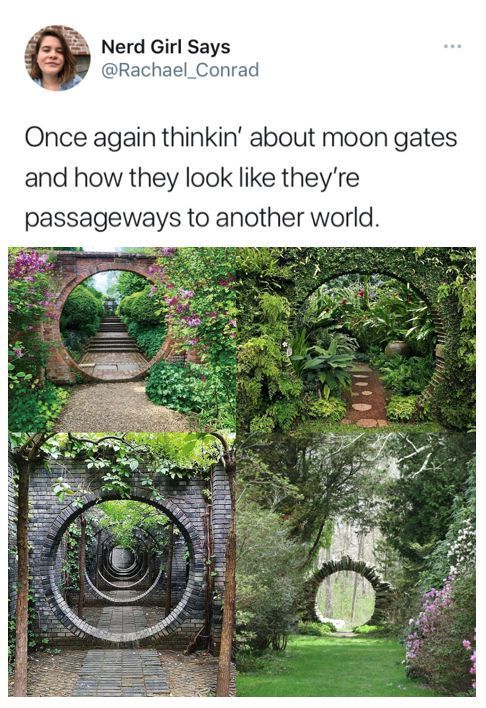
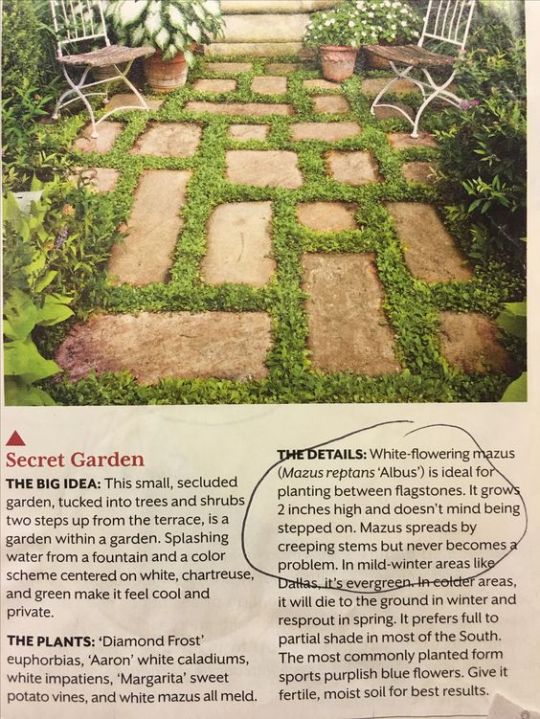
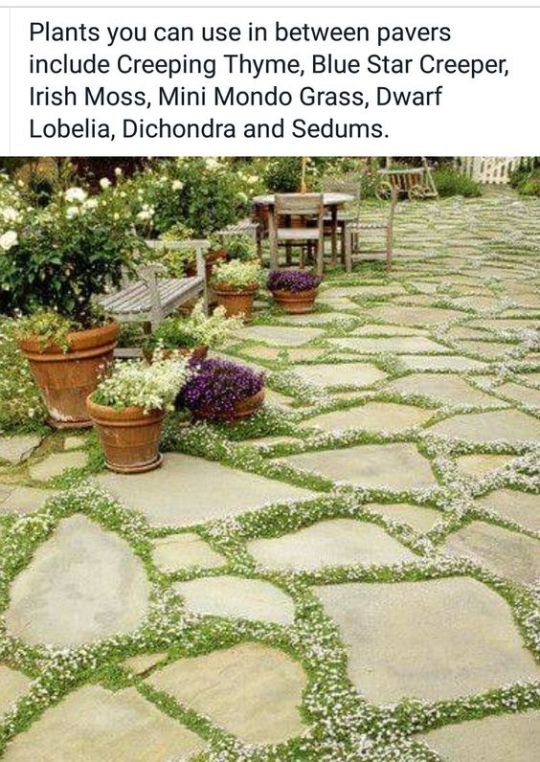
23 notes
·
View notes
Text

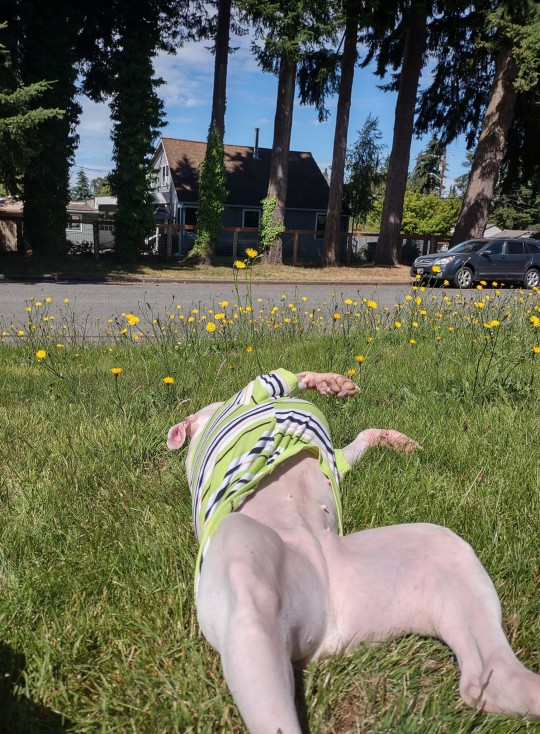
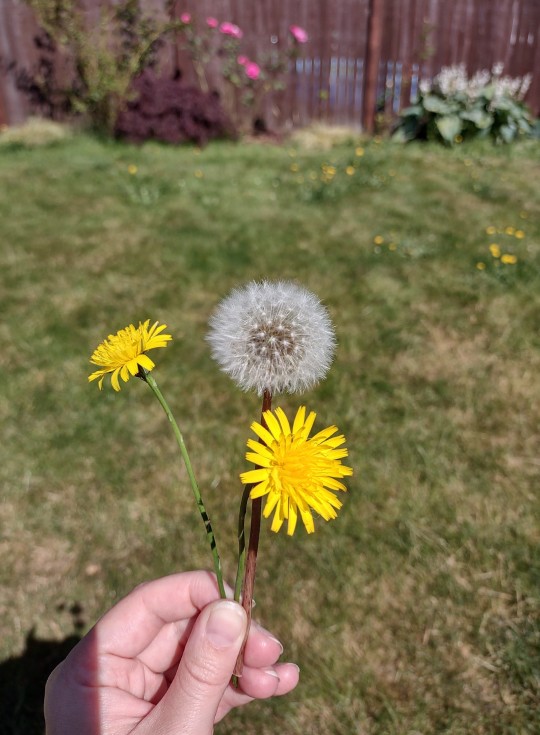
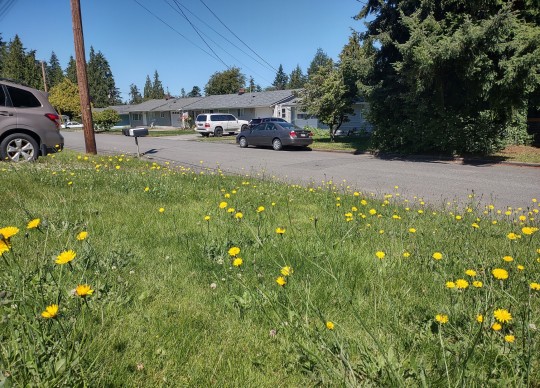
My yard is fulls of cats'-ear right now and it's so sunny and cheerful! Convinced the neighbors hate me, but I hate mowing more, so ¯\_(ツ)_/¯
#i want to do an island in the middle and eventually replace the grass with kurapia#i do wish they were true dandelions just because these leaves are kind of hairy and wiry#not as nice to lay on but clearly that isn't stopping Dixie#anti lawn culture#dandelions
6 notes
·
View notes
Text
A list of (realistic) things you can do to be more environmentally friendly
(from an earth-loving horticulture student.)
— COSMETICS
Use bar soap instead of soap bottles
Use old toothbrushes for cleaning surfaces
Try exploring and researching some homemade face/body/lip products
Use ice sleeves, sunglasses, and caps instead of sunscreen (Edit: I’ve seen people say that it is safer and even necessary to wear sunscreen at all times so try to use eco friendly sunscreen instead! In my country it’s pretty uncommon to wear sunscreen often as we usually wear ice sleeves which is why I did not know this oof)
Use coffee grinds or homemade tumeric masks instead of cosmetic products with exfoliator beads
Invest in a metal ear cleanser instead of cotton buds
Try placing more importance on skincare instead of contributing to exploitative beauty companies by buying makeup
Use cosmetic products that do not contain palm oil
— CLOTHING
Try as much as possible to rewear your outfits at least twice before washing them
Actually WEAR your clothes! I know some of y’all just wear them once for your Instagram post and let it rot in your closet forever. Stop doing that!
Thrift, stitch up holes in your clothes, and use second hand clothing instead of supporting fast fashion companies like SHEIN, H&M, Zara, etc.
Cut up your old clothing into yarn and do macramè with it
Cut patches of old clothing to turn into reusable cotton pads
Learn how to knit, crochet or stitch your clothes!
If you use tampons, try menstrual cups or discs instead. If you use pads, try reusable pads or period underwear. (Trust me, it works). Also, use reusable panty liners instead of disposable ones. They may seem expensive but you will end up saving a lot more in the long run
— GARDENING
Plant seeds/cuttings in your old bottles, jars, and containers
Propagate your plants and exchange cuttings with your friends instead of buying new plants
Make your own soil mixes instead of buying soil mixes
Better yet, don’t use soil for your indoor plants and try getting into hydroponics or semihydroponics instead. This saves so much water and doesn’t contribute to mining of soil
Fertilise plants with fruit peels, coffee grinds, and tea leaves. (DO NOT use chemical fertiliser on soil)
Plant more legume plants in your garden instead of using nitrogen fertilisers. (Look up the nitrogen cycle if you need an explanation on this)
Avoid pesticides unless really needed. Try sprinkling cinnamon powder on soil or spraying neem oil on plants and soil to keep away pests.
If you have a lawn, try looking into rain gardens and consider making one
Let the (non invasive) weeds in your lawn/garden grow! They are there for a reason!
Stop killing earthworms and millipedes in your garden. This also applies to snails native to your region. They are there for a reason.
Water used to wash fruits and rice can be used to water plants
— REDUCE, REUSE
Use the caps of jars as soap holders
Use recycled paper/notebooks
Wash and dry your glass/plastic items before throwing them in the recycling bin
Keep any plastic bags for future use
Use eco friendly or reusable dish sponges
Use reusable straws and cups
Invest in a fabric cup holder
Bring a water bottle with you wherever you go
Drink more water and less sugary drinks
Bring reusable bags for buying groceries instead of using plastic ones
Always keep a folded up tote/shopping bag with you in case you spontaneously decide to buy something
— ELECTRICITY
Set a timer on your air conditioning instead of letting it run throughout the night
Better yet, use a fan instead of an air conditioner
Open your windows! Aerate your home!
Allow natural light to enter your home during the daytime, so as to avoid turning on your lights
Switch to LED lightbulbs instead of regular lightbulbs
Turn off any switches in your house when they are not in use
Collect the water from your air conditioner/dehumidifier condenser and use that to water plants, clean surfaces, steam ironing, and flushing toilets. Do not drink it though!
— INTERNET
Delete your all of your unwanted emails
Delete your inactive social media accounts
Try not to post excessively on social media and stop scrolling excessively too. This not only reduces energy usage but also improves your mental health and productivity
Try to keep to one social media app instead of having so many
Reduce your internet usage
Save your eBooks on a thumbdrive instead of on cloud
Use Ecosia instead of Google
Stop being influenced by social media trends that only just contribute to consumerism
Download music instead of streaming
Reduce online shopping
— FOOD
Reduce intake of processed foods
Reduce intake of fish, beef, and dairy
Try eating vegan or vegetarian foods at least once or twice a week
Cook your own meals instead of eating out
Bring your own food containers when taking away food from stores
Beeswax wrap instead of cling wrap!
Buy loose-leaf tea or plastic free tea bags instead of regular tea bags
Eat more mushrooms, vegetables, and fruits and drink more water
Support local farmers
And finally, educate yourself more about ecology and the environment!
#environment#ecology#sustainability#ecofriendly#anti lawn#anti beauty culture#hell on earth#save the earth#recycling#fast fashion#plants#feminism#environmental activism#plantcore#ecopunk#solarpunk#horticulture#sustainable#slow fashion#zero waste#plastic free#conservation#climate change#global warming#soil science
1K notes
·
View notes
Text
i understand being annoyed by young therians to some extent - kids will always be annoying to some adults inherently and thats fine. but adult therians need to learn to pick their battles, when to realize whatever theyre complaining about is the equivalent of "get off my lawn!!"
#hint: ur allowed to be annoyed by people on ur lawn but u need to understand its an unimportant issue#and not really justifiable so its best to not try#its fine to think younger therian culture is silly or you dont get it#but if ur at a point where ur trying to justify your hatred of them via random obscure unhurtful thing they do... um#idk how to say this but if ur like that ur doing the same thing as#the adult therians who told US WE were fake or unserious because we wear taxidermy tails#and now look. we all grew up and all of us love tails and its not an issue anymore.#the same thing will happen with current young therian culture so i hope u dont get left behind#i mean. imagine being alterhuman and anti-gear in 2023. sounds insane. cuz it is lol#dont be the future's equivalent of that guy#alterhuman#woof
38 notes
·
View notes
Text
apropos of another weird anti-grass post is that one thing i feel like should be common knowledge, but know very well isn't, is that mowing your lawn is an act simulating the symbiotic relationship grass has with grazing animals.
like. grass is eaten by grazing animals; it's one of the primary foodstuffs of creatures with teeth and stomachs that are up to the job, because it's so plentiful. a cow is a grass-predator. you'd think that would make cow the enemy of grass.
but grass is optimized to be browsed and walked on. it absorbs that shit like it's nothing, up to the point that these activities start either damaging the root-mat or cutting back the new growth so early that the plant doesn't have enough leaves to eat with.
but the rivals of grass are not so much so optimized. most non-grass meadow plants that don't pretty much lie flat (i'm generalizing wildly here obvs) have stems they depend on, that can be snapped much more easily than the vascular systems of most grasses, especially short ones, and have to start all over again if you compromise the stem an inch off the ground.
and trees, whew. a tree sprout that gets bitten off is just done. it shot its shot.
which means that grass benefits from grazing animals about as much as those animals benefit from grass. they maintain each other.
grass doesn't grow because it inherently wants to be tall. it is, fundamentally, indifferent to tall. it wants sun access, so it can eat, and if it stops growing it'll be in the shade of everybody else, so it goes for it. if everyone is getting sheared off a little above the ground, grass is winning. because grass copes with that like a champion.
and grass-dominated meadow is absolutely a valid biome, and one of the most natural environments for humans.
so mowing a lawn in order to keep it conveniently walkable and mostly-grass is like. technically inferior to hiring some goats like the Mortifying Ordeal guy, if only that could be made a convenient routine transaction and if you were willing to endure the botanically desirable side effect of goat shit. but a perfectly reasonable maintenance method for a small patch of earth you aren't actively cultivating to any other purpose. and cultivating all land all the time is a dumb unsustainable goal and i don't like it.
mowing is fine. grass, ideally local grass, basically anywhere not a desert is splendid.
it's the poisons that are literally just an offense against man and nature.
#dousing your lawn in herbicides and pesticides is like#white supremacy for plants#although honestly i think the anti-grass backlash is more like the#'all masculinity is toxic' movement#anyway#lawn culture#the circle of life#grass#grasses#hoping this does not somehow become a pokemon post like my last grass rant#hoc est meum#herbivores
464 notes
·
View notes
Text
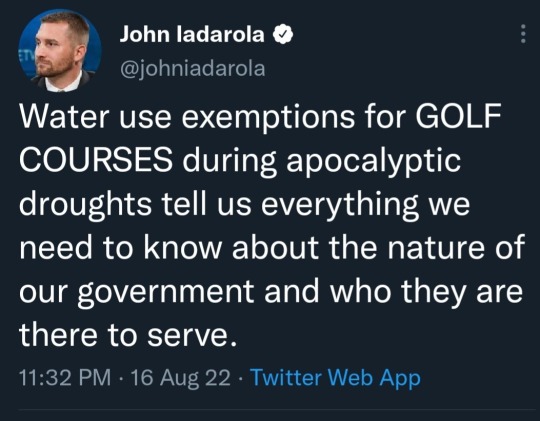
40 notes
·
View notes
Text
btw now that ive gotten set me free out of my system womxnly by jolin tsai has become my new cpop translation white whale like not because the song itself is that impossible to translate but because i cannot think of any way for me to make a post about that song without getting completely sidetracked into a deranged rant about chinese pop culture's unceasing efforts to try and act as if that song's message about overcoming adversity and discrimination can be applicable to everyone and that it is not, in fact, explicitly a song about homophobic/transphobic violence
#asto speaks#i have. so many. extremely unhappy thoughts about this song and the way it gets used in chinese pop culture#like people want soooo bad for it to just be another anti bullying/anti haters song#the way (presumably) cishets keep flocking to this song like 'i was bullied in middle school i Get It' no you dont get the fuck out of here#i feel like i might be overreacting but also as a trans person just let me have this one thing okay. get off my lawn#also as much as i love the man. i blame zhou shen for contributing to this. btw#cuz he and gai sang a cover of it on some music show or another and they completely rewrote all the lyrics to be like#actually what the cishets want it to be. like just an anti haters song#AND ITS LIKE. i kinda get it cuz the original lyrics are like 5 different kinds of unairable on national television BUT ALSO#LIKE. THANKS FOR THE ERASURE I GUESS MY GUY#like if you havent heard the song like for an idea of how. fucked up it is to rewrite the damn lyrics#THE WORD SEXUALITY WAS IN THE SONG#like there is no like. debate about what the original lyrics are about the straights just cant read#like they only kept the really iconic lyrics that dont reference ye yung-chih or the VERY OBVIOUS QUEER CONTENT of the original song#oh and they had the gall to keep '玫瑰少年在我心里' WHICH 玫瑰少年. WHO IS HE. LOOK IN MY EYES AND TELL ME#IF YOU DARE#wow i never realised how angry i actually am about this cover JKSDFHKJDHS
3 notes
·
View notes
Photo
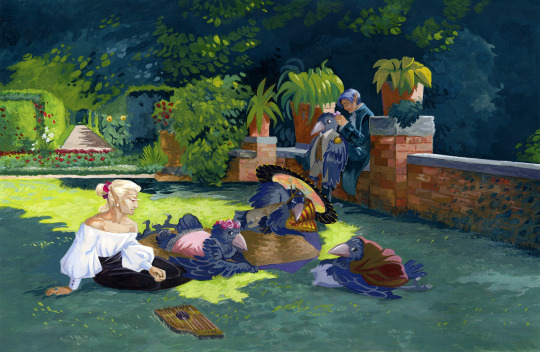


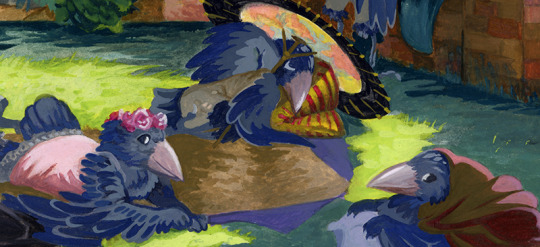

In Sunlight
More art of my druid William and some of his found family. :)
Based on James Tissot’s painting “In Full Sunlight” c. (1881).
This took so many hours and I learned so much! It’s the biggest gouache painting I’ve done, 25.5x40cm (10x15 in)
#dnd#kenku#elf#druid#gouache#based on james tissot's in full sunlight painting#William is anti-lawn culture and intentionally planted native low growing plants#so the kenku he helped save from servitude under xanathar would have a big flat space to play on#classics
37 notes
·
View notes
Note
i haven't gotten around yet to reading ur essay but having looked at ur f&c posts.... ur so right
when i watched thru it i was like "this is fine :)" but felt dissatisfied n didn't know why exactly but didn't look into it much but the points u bring up really make sense and i See now what felt so off
i want to make a video essay about this stuff (don't know for sure if i will) but if i do i was wondering if it's ok if i reference your commentary?
ooohhhh yeah you can reference my commentary for sure! congrats to getting to making a video essay about this before my frustration forced me to do so myself, good luck you are doing important work *salutes you*
#text#fionna and cake spoilers#currently IM actually working on a video essay its taking up like 70% of my time lmao#so this is funny timing for this question#my essays not abt adventure time tho its.#a persuasive essay for the anti lawn movement#+ a break down of the history of lawn culture in america and why its built on harmful ideology#so. not at all related#stay tuned for me to release it like. next summer probably#its a big project#mom said im essentially giving myself a college course on it lmao
5 notes
·
View notes
Text
Every fucking night I have to listen to my neighbors over-water their 8'x9' oval of grass surrounded by bark mulch. Every time a car drives past I can hear the water in the road splashing up like it just dump an inch of rain.
#lawn culture#no lawns#anti lawn#water conservation#also I was today years old when I learned bark o mulch is a local brand name for bark mulch#I just thought that's what bark mulch was called
3 notes
·
View notes
Text
against the logic of the lawn
Imagine a box.
This box is sealed with tape or adhesive, which shows you that it has never been opened or re-used. It is in pristine condition. Apart from that, the box could hold anything. It could contain a Star Wars Funko Pop, a printer, a shirt ordered from some sketchy online vendor, a knockoff store-brand cereal, six individually wrapped protein bars.
As a Consumer ("the" Consumer) this is your fundamental right: To purchase a box that is, presumably, identical to every other box like it.
When you Buy Product, it arrives in a box, entire of itself and without context. It has not changed since its creation. If and when Product does change—whether it is broken, spoiled, used up, or eaten—you can Buy Product that is identical in every meaningful way to the original.
It's okay if this doesn't make sense yet. (You can stop imagining the box now.)
Imagine instead a suburban housing development, somewhere in the USA.
Imagine row on row of pristine, newly built houses, each constructed with small, meaningless variations in their aesthetic, all with beige or white vinyl siding and perhaps some decorative brick, all situated on identical rectangles of land covered with freshly unrolled sod. This is the Product that every consumer aspires to Buy.
I am not exactly—qualified, or entitled, to speak on the politics of land ownership in this country. My ancestors benefited directly from the genocide of Native Americans, which allowed Europeans to steal the land they lived on, which is where a lot of wealth comes from in the end, even today. However, I have eyes in my head to see that the act of colonizing a continent, and an economic system that formed as a supporting infrastructure to colonization, have embedded something almost irreparably dysfunctional into the dominant American culture's relationship to land.
This dysfunctional Thing, this Sickness, leads us to consider land to be a Product, and to consider a human upon the land to be a Consumer.
From this point of view, land is either locked into this relationship of control and "use" to varying extents, or it is free of human influence. People trying to reason about how to preserve Earth's biosphere, working within this framework without realizing, decide that we must "set aside" large areas of land for "nature."
This is a naive and, I would reckon, probably itself colonialist way of seeing things. It appears to be well-validated by evidence. Where human population is largest, there is less biodiversity.
But I find the broad conclusions to be strikingly unscientific. The plan of "setting aside part of Earth for nature" displays little curiosity about the mechanisms by which human presence impacts biodiversity. Otherwise intelligent people, perhaps caught up in the "bargaining" phase of climate grief, seem taken in by the idea that the human species gives off a magical anti-biodiversity force field, as if feeling guiltier will fix the problems.
(Never mind that lands managed by indigenous folk actually have MORE biodiversity...almost like our species' relationship to the planet isn't inherently exploitative, but rather, the capitalist and colonialist powers destroying everything.......)
Let's go back to the image of the new housing development. This image could be just about anywhere in the USA, because the American suburban home is made for universal interchangeability, where each little house and yard is static and replaceable with any other.
Others have written about the generic-ification of the interiors of homes, how houses are decorated with the most soul-killing, colorless furnishings to make them into Products more effectively. (I think @mcmansionhell wrote about it.)
This, likewise, is the Earth turned into a Product—razed down into something with no pre-existing context, history, or responsibility. Identical parcels of land, identical houses, where once there was a unique and diverse distribution of life. The American lawn, the American garden, the industry that promotes these aesthetics, is the environmental version of that ghastly, ugly "minimalism" infecting the interiors of homes.
The extremely neat, sparse, manicured look that is so totally inescapable in American yards originated from the estates of European aristocracy, which displayed the owner's wealth by flaunting an abundance of land that was both heavily managed and useless. People defend the lawn on the basis that grass tolerates being walked upon and is good for children to play, but to say this is *the* purpose of a lawn is bullshit—children are far more interested in trees, creeks, sticks, weeds, flowers, and mud than Grass Surface, many people with lawns do not have children, and most people spend more time mowing their lawn than they do doing literally anything else outside. How often do you see Americans outside in their yards doing anything except mowing?
What is there to do, anyway? Why would you want to go outside with nothing but the sun beating down on you and the noise of your neighbors' lawn mowers? American culture tries to make mowing "manly" and emphasizes that it is somehow fulfilling in of itself. Mowing the lawn is something Men enjoy doing—almost a sort of leisure activity.
I don't have something against wanting a usable outdoor area that is good for outdoor activities, I do, however, have something against the idea that a lawn is good for outdoor activities. Parents have been bitching for decades about how impossible it is to drag kids outdoors, and there have been a million PSAs about how children need to be outside playing instead of spending their lives on video games. Meanwhile, at the place I work, every kid is ECSTATIC and vibrating with enthusiasm to be in the woods surrounded by trees, sticks, leaves, and mud.
The literal, straightforward historical answer to the lawn is that the American lawn exists to get Americans to spend money on chemicals. The modern lawn ideal was invented to sell a surplus of fertilizer created after WW2 chemical plants that had been used to make explosives were repurposed to produce fertilizer. Now you know! The more analytical, sociological answer is that the purpose of the lawn is to distance you from the lower class. A less strictly maintained space lowers property values, it looks shabby and unkempt, it reflects badly on the neighborhood, it makes you look like a "redneck." And so on. The largest, most lavish McMansions in my area all have the emptiest, most desolate yards, and the lush gardens all belong to tiny, run-down houses.
But the answer that really cuts to the core of it, I think, is that lawns are a technology for making land into a Product for consumers. (This coexists with the above answers.) Turfgrass is a perfectly generic blank slate onto which anything can be projected. It is emptiness. It is stasis.
I worry about the flattening of our imaginations. Illustrations in books generally cover the ground outdoors in a uniform layer of green, sometimes with strokes suggesting individual blades of grass if they want to get fancy. Video games do this. Animated shows and movies do this.
Short, carpet-like turfgrass as the Universal Outdoor Surface is so ubiquitous and intuitive that any alternative is bizarre, socially unacceptable, and for many, completely unimaginable. When I am a passenger in a car, what horrifies me the most to see out the window is not only the turfgrass lawns of individuals, but rather, the turfgrass Surface that the entire inhabited landscape has been rendered into—vacant stretches of land surrounding businesses and churches, separating parking lots, bordering Wal-Marts, apartment complexes, and roadsides.
These spaces are not used, they are almost never walked upon. They do nothing. They are maintained, ceaselessly, by gas-powered machines that are far, far more carbon-emitting than cars per hour of use, emitting in one hour the same amount of pollution as a 500-mile drive. It is an endless effort to keep the land in the same state, never mind that it's a shitty, useless state.
Nature is dynamic. Biodiversity is dynamic. From a business point of view, the lawn care industry has found a brilliant scheme to milk limitless money from people, since trying to put a stop to the dynamism and constant change of nature is a Sisyphean situation, and nature responds with increasingly aggressive and rapid change as disturbance gets more intense.
On r/lawncare, a man posted despairingly that he had spent over $1500 tearing out every inch of sod in his yard, only for the exact same weeds to return. That subreddit strikes horror in my heart that I cannot describe, and the more I learn about ecology, the more terrible it gets. It was common practice for people in r/lawncare to advise others to soak their entire yard in Roundup to kill all plant life and start over from a "blank slate."
Before giving up, I tried to explain over and over that it was 100% impossible to get a "blank slate." Weeds typically spread by wind and their seeds can persist for DECADES in the soil seed bank, waiting for a disastrous event to trigger them to sprout. They will always come back. It's their job.
It was impossible for those guys to understand that they were inherently not just constructing a lawn from scratch, and were contending with another power or entity (Nature) with its own interests.
The logic of the lawn also extends into our gardens. We are encouraged to see the dynamism of nature as something that acts against our interests (and thus requires Buy Product) so much, that we think any unexpected change in our yard is bad. People are sometimes baffled when I see a random plant popping up among my flowers as potentially a good thing.
"That's a weed!" Maybe! Nonetheless, it has a purpose. I don't know who this stranger is, so I would be a fool to kill it!
A good caretaker knows that the place they care for will change on its own, and that this is GOOD and brings blessings or at least messages. I didn't have to buy goldenrod plants—they came by themselves! Several of our trees arrived on their own. The logic that sees all "weeds" as an enemy to be destroyed without even identifying ignores the wisdom of nature's processes.
The other day at work, the ecologist took me to see pink lady's slipper orchids. The forest there was razed and logged about a hundred years ago, and it got into my head to ask how the orchids returned. He only shrugged. "Who knows?"
Garden centers put plants out for sale when they are blooming. People buy trees from Fast Growing Trees dot com. The quick, final results that are standard with Buy Product, which are so completely opposite the constant slow chaos of nature, have become so standard in the gardening world that the hideous black mulch sold at garden centers is severed from the very purpose of mulch, and instead serves to visually emphasize small, lonely plants against its dark background. (For the record, once your plants mature, you should not be able to SEE the mulch.)
Landscapers regularly place shrubs, bushes, trees and flowers in places where they have no room to reach maturity. It's standard—landscapers seem to plan with the expectation that everything will be ripped out within 5-10 years. The average person has no clue how big trees and bushes get because their entire surroundings, which are made of living things (which do in fact feel and communicate) are treated as disposable.
Because in ten years, this building won't be an orthodontists' office, in ten years, this old lady will be dead, in ten years, the kids will have grown, and capitalism is incapable of preparing for a future, only for the next buyer.
The logic of the lawn is that gardens and ecosystems that take time to build are not to be valued, because a lush, biodiverse garden is not easily sold, easily bought, easily maintained, easily owned, or easily treated with indifference. An ecosystem requires wisdom from the caretaker. That runs contrary to the Consumer identity.
And it's this disposable-ness, this indifference, that I am ultimately so strongly against, not grass, or low turf that you can step on.
What if we saw buying land as implying a responsibility to be its caretaker? To respect the inhabitants, whether or not we are personally pleased by them or think they look pretty? What creature could deserve to be killed just because it didn't make a person happy?
But the Consumer identity gives you something else...a sense of entitlement. "This is MY yard, and that possum doesn't get to live there." "This is MY yard, and I don't want bugs in it." "This is MY yard, and I can kill the spiders if I want to."
Meanwhile there is no responsibility to build the soil up for the next gardener. No responsibility to plant oaks that will grow mighty and life-giving. No responsibility to plant fruit-producing trees, brambles, and bushes. None of these things, any of which could have fulfilled a responsibility to the future. Rather, just to do whatever you damn well please, and leave those that come after with depleted, compacted soil and the aftermath of years of constant damage. It took my Meadow ten years to recover from being the garden patch of the guy that lived here before us. Who knows what he did to it.
The loss of topsoil in all our farmland is a bigger example, and explains how this is directly connected to colonialism. The Dust Bowl, the unsustainable farming practices that followed, the disappearance of the lush fertile prairie topsoil because of greed and colonizer mindset, and simple refusal to learn from what could be observed in nature. The colonizing peoples envisioned the continent as an "Empty" place, a Blank Slate that could be used and exploited however.
THAT is what's killing the planet, this idea that the planet is to be used and abused and bought and sold, that the power given by wealth gives you entitlement to do whatever you want. That "Land" is just another Product, and our strategies for taking care of Earth should be whatever causes the most Buy Product.
It's like I always write..."You are not a consumer! You are a caretaker!"
#plants#native plants#no lawns#kill your lawn#anti lawn#consumerism#capitalism#colonialism#genocide tw
2K notes
·
View notes
Text
"Save the Bees" is not enough
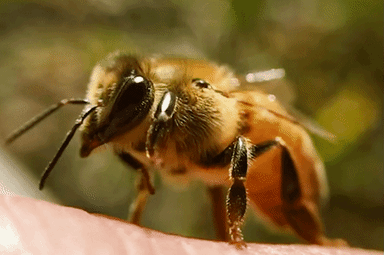
Yo, Solarpunks. Let us talk bees. And yes, everyone else, too. Like, yeah, bees.
See, whenever we are talking about insects dying, people will go "save the bees". And whenever I hear "save the bees", I will just go and say: "You don't get it, do you?"
People like bees. Because bees make honey, right? Yeah, only they don't. No, really. The honey bee is just one species of bees, while other bee species do in fact not make honey. Which is why we domesticated the honey bee, but not those other species. Duh. Because one was useful to us, while the others were not. As such we love the honey bee, but do not care about the other insects that are dying off.
Meme culture tells me, that you have probably seen Bee Movie. And I will now shock you. The movie lies to you! ("No!" - "YES!") And with that I do not mean, that actual bees are unable to speak. Or the fact that most bees are female (if we really wanna impose genders on bees). No, with that I mean the big thing that happens in the finale of the movie of all plants and what not dying off.
For those, who somehow have not seen that 90 minute meme: In the movie the honey bees sue the humans for stealing their honey. They win. Have their own honey and stop working. (Boy, lots to unpack there, eh?) and because of it all the flowers and crops die.
Well, here is the thing: Honey bees are actually not that important as polinators. Like, sure, they polinate a lot of crops and flowers, but... normally they are not the big pollinators, even though we kinda make them to, by shipping all those honey bees around. Other bee species pollinate a lot of plants, too. And so do other animals, like bats and birds for example. And that is without going into the less liked animals that pollinate, like flys. And then we also have all those self-pollinating crops and flowers, as well as air polinating plants.
Let me make one thing clear: You should care about bees. All the bees. (Because hint, the honey bees have the least of a problem.) But you should also care about the other insects that are dying off. Not only because of the pollination, but also because insects play a bigger role than just pollination.
Insects, for example, are important as prey animals for lots of birds and smaller animals. Just as some insects might actually play a role in dealing with natural waste. So, the dying off of insects is a bigger problem of "plants don't get pollinated".
So, why do the insects die?
Yes, part of the reason is habitat loss. You know, your lawn is a fucking desert to most insects. They not only need a bigger variety of plants around (not just flowers), but maybe also some old wood to borrow into and some loose earth on the ground. Stuff like that.
Insects usually also do not deal very well with the climate change. Be it with the growing heat or with the more erratic weather patterns of draught and then just quick and sudden rainfall, that does not linger.
And, of course, there is also the fact that we use a lot of anti-insect pesticides in agriculture. Which does not only hit those pests, but basically any other insect around.
And then... there is the invasive species. We kinda spread a lot of invasive insect species around, that also kill a ton of the local insect species.
So... What can you do? Well, if you have a garden, you can make it more insect friendly. Duh. You also can leave out some water for insects and birds. They all need it.
But most of all: Become politically active. Make sure that pesticides are used less. It is maybe the most important.
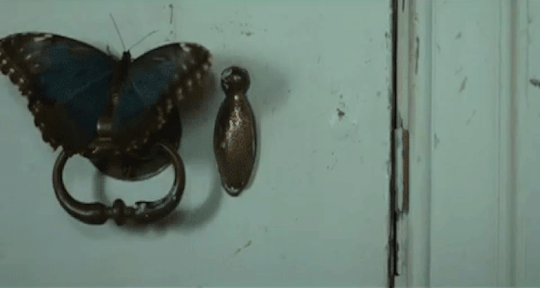
#solarpunk#save the bees#bees#cw insects#insects#climate change#conservation#save the planet#bee movie is lying to you#environmentalism
287 notes
·
View notes
Text
After three Ottawa schools were targeted by a mob of anti-transgender extremists, some residents who live in a quiet corner of west-end Ottawa are just confused how their front lawns turned into the latest culture war battleground.
“This is a very quiet residential area,” one elderly Broadview Avenue resident told PressProgress. “The majority are retirees, it just doesn’t make any sense to me.”
“Why us?”
The elderly resident, who requested not to be named, was “very upset” about the people who descended on Broadview Avenue last Friday. She later found garbage and cigarette butts strewn across her neatly-trimmed yard.
“We have nothing to do with these protests that caused so much trouble,” she added. “It’s almost like they penalized us.” [...]
Continue Reading.
Tagging: @politicsofcanada, @vague-humanoid
#cdnpoli#Ontario#Ottawa#reactionary politics#transphobia#queerphobia#homophobia#harassment#hate crimes#crime and punishment in canada
99 notes
·
View notes
Note
Hi Jen,
I hope this finds you well. I’m sixteen and I’m seeking advice. I am mostly feminine, but in the last year I’ve become increasingly uncomfortable with that, which has given me a sense of whiplash. I’ll be perfectly fine wearing a skirt and revealing top one moment, and then feel like I want to jump out of my skin the next. I know it’s normal to not have all the answers at my age, but it doesn’t make it any less frustrating.
I live in a progressive city and was raised in a relatively accepting home, but I still struggle with my identity and have a hard time feeling comfortable with the word “gay.” I’m out to a few friends (some straight and some LGBT), but I still feel so alone. This, of course, makes me feel awful, because I recognize what a privileged situation I am in compared to a lot of lesbians, and I feel as though I “should” be more accepting of myself, i.e. I end up feeling guilty because I feel bad. Plus I’m all jumbled up about masculinity vs feminity… the point is, I could really use some advice from an older lesbian. I don’t know any of those in real life (actually, now that I think about it, I’m not sure that I know *any* lesbians at all in my personal life, which is pretty sad), and that makes it hard to envision any type of future for myself.
Thank you for your thoughts <3
It always makes me sad to read that young lesbians don't know any older ones in real life because I remember how isolating that felt. It was definitely one of the reasons I struggled so hard to be even just neutral about my sexuality and why I misunderstood being butch for so many years.
The butch/femme and masc/feminine discourse has gotten a bit out of control in large part due to the internet and social media. If you don't have real life intergenerational connections it can feel like ALL lesbians are on one side or the other of a very black and white line and that is just not the reality of real life.
I would say the majority of lesbians are "garden variety" or in the "comfy" zone of neither butch nor femme or neither masc or feminine. Just women who are lesbians and exist on the human level of having characteristics that are both stereotypical and non stereotypical as far as what culture assigns to us based on sex. Even butches and femmes do no necessarily check all the “boxes” the world thinks we should.
My lesbians friends who are not butch or femme are comfortable in a wide range of clothing and hair cuts and it just depends on what suits them at the moment. Once we get a little experience under our belts out in the world we seem to learn to wear what is both comfortable and utilitarian without worrying about the perception of the outside world. When it comes to dressing up for an occasion like a date or an event I wear what makes ME feel best and while still balancing that with what I think women might find me attractive in. I think it is a normal, common thought process shared with most other humans. We can choose what makes us feel good and still want to look good for others, especially other women.
I can assure you that, all jokes aside, no one can take your lesbian card for clothing choices, hair cuts or any other aesthetics. Your sexual orientation is what makes you a lesbian. Everything else is just being human. Don’t mistake the community or experiences you might share (or not share) with other lesbians as a requirement of your lesbianism. Those are perks but not necessary.
If you were sitting in your lawn chair by a fire pit with a variety of other lesbians you would hear many stories about how we struggled with being okay with our sexual orientation and it is not necessarily dependent on any support or lack thereof that we received. While an aggressively negative or anti homosexual home life, family or religious background can certainly make accepting ourselves much harder, even those of us whose family and friends were neutral or supportive had internal obstacles to overcome.
Few humans are free from the affects of the outside world, even before social media. In my youth, movies, tv, magazine and my peer group all had some backwards ideas about what being a lesbian is and applied incorrect moral ideals to it. I had to put in the work myself for many years to come to terms with being same sex attracted in a world that attached negativity to such relationships. Once I had lesbian friends, especially older ones I saw hope in my future.
You are okay just as you are. Your personality, aesthetic choices and hobbies do not have any affect on your sexual attraction and orientation so be you, enjoy what you like and be honest with yourself about what kind of woman you want to love and be loved by.
I hope you find some lesbian friends of many ages. In the meantime my tiktok might help you see that lesbian life can be full of happiness, friendships and variety.
55 notes
·
View notes
Text
i was hoping to have a piece for work done for this but tumblr hates links anyway so i'll just get on my soapbox without the full force of local journalism on my side i guess
anyway there's a demonstrated, organized, concentrated effort by right wing political groups masquerading as concerned parent groups to overrun municipal and local elections for things like school board candidates
yeah, you know those right wing parents complaining about gender queer and lawn boy and the existence of gay people in a classroom setting? it's absolutely an organized, funded republican psyop
they're trying to flip shit red at the local level in even the bluest areas and they'll succeed a lot of the time because people do not pay attention to local elections
regardless of your own (earned) cynicism about broader federal elections and how much good they do or do not do, not voting is not the solution. i understand the burn out of hearing from out of touch liberals whose only solution ever seems to be saying "vote" and then doing nothing when elected, but here's the thing -- voting is a solution in tandem with other solutions, not just the be all end all.
all that to say: while your life may not drastically change based on who wins your state's senate seat or who is in your house of representatives, it WILL drastically change if your entire city counsel or all of your county commissioners are now suddenly Christian nationalist/Qanon/culture war crusaders.
Elected positions like judge, sheriff, school board members, board of elections members, etc. are elections that people pay absolutely no attention to but actually have some kind of foundational impact on your day to day lives. These elections can be decided by margins of dozens of votes and when bad actors are in the background drumming up controversy and support based on anti-LGBTQ or anti-immigrant hysteria or even just straight up conspiracism (QAnon adherents are targeting secretary of state positions), it can and will affect people.
So yeah, go out and vote. but hone in on those smaller local elections too. sweeping federal change might be difficult to get in the short term, but your cities could be harmed in the short term because the fact is that the right wing is better organized and more unified in their intentions than anyone from the center over and that gives them an advantage in smaller races.
pay attention to who is running for your city council and your local school board. tell your friends and family, too. seriously!
#this is a thread i'm tugging at work right now but i gotta say my piece#anyway#feel free to reblog this#politics#voting#like i cant stress enough how much there is actively a conspiracy to infiltrate school boards#and how it will absolutely hurt and kill queer kids and teachers#so#yeah go vote. register. volunteer if you have the ability and desire. tell your friends.
153 notes
·
View notes